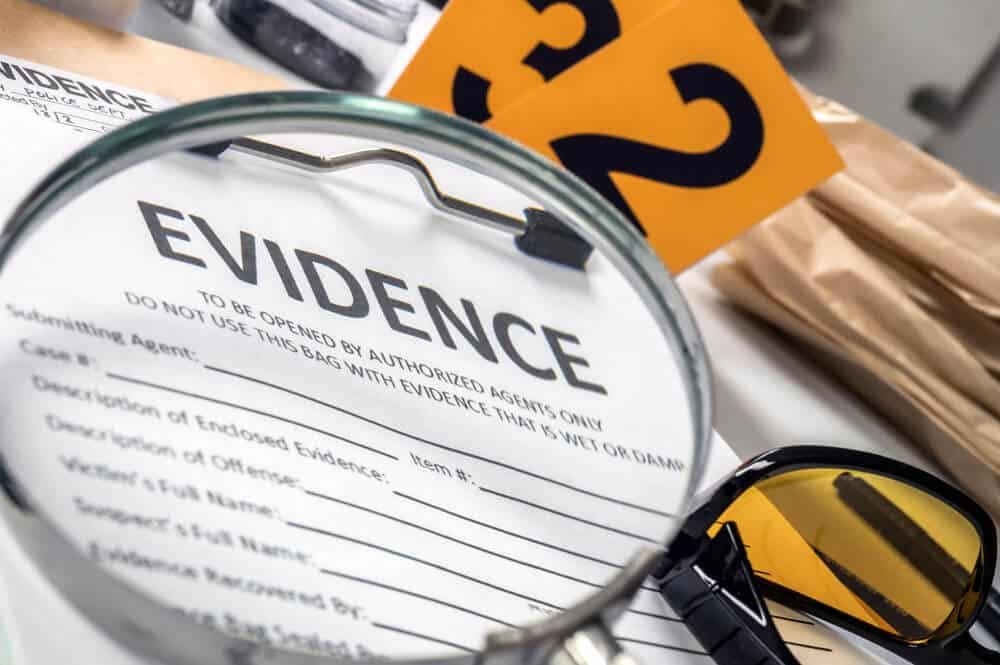If you have been accused of a crime in Jersey City, the prosecutors have the burden of proof. They need to prove you are guilty of the crime beyond a reasonable doubt; otherwise, you can walk free no matter the case’s facts. Prosecutors can utilize different forms of evidence when proving your guilt in a criminal court. Because of this, you must have a skilled defense attorney from the Law Offices of Anthony Carbone, P.C. on your side who can protect your rights.
The kinds of evidence the prosecution will use against your case depend on its facts. Prosecutors need to collect relevant evidence against you and various kinds of evidence can be related in multiple cases. Learn more about this evidence below:
Direct and Circumstantial Evidence
The kinds of evidence utilized in criminal cases are categorized into direct and circumstantial evidence. Often, direct evidence speaks for itself. A good example of this evidence is the weapon associated with an attempted murder case. Meanwhile, circumstantial evidence suggests fact by interference or implication. An example is the testimony of a witness stating the defendant was running away from the crime scene.
Often, prosecutors use several pieces of evidence to try to prove a criminal charge. If you are facing criminal charges, it is your right to know the evidence that prosecutors want to use against you in a criminal court. Your attorney can secure this evidence during the discovery process.
Kinds of Evidence Used in Criminal Cases
There are various kinds of direct and circumstantial evidence. Knowing this evidence allows you to decide how to approach your legal defense. In criminal cases, below are the common kinds of evidence used by prosecutors:
- Physical evidence. This includes tangible items that indicate the commission of a crime. It includes cell phones, knives, computers, and guns. Although this type of evidence alone may not be enough to prove the commission of a crime, prosecutors can combine it with other types of evidence to demonstrate what took place and the parties involved.
- Witness testimony. This evidence plays an important role in a lot of criminal cases. Common forms of this evidence include testimony from eyewitnesses, other people who know the victim or the defendant, and expert witnesses. In the state, cross-examination of the defendant can only take place if the defendant makes voluntary testimony in their defense. Because of this, you must make smart decisions regarding whether to testify in your case.
- Forensic evidence. When law enforcement officers investigate an alleged crime, they may collect evidence from the crime scene and other locations. A lot of this evidence is classified as forensic evidence. Examples include DNA, biological matter like blood hair, and fingerprints and footprints. When prosecutors seek to introduce this evidence in court, they may depend on expert testimony. For instance, when introducing DNA evidence in sexual assault cases, the prosecutors will depend on experts to elaborate on the collection and testing of the DNA to associate with the defendant.
- Digital evidence. Aside from text messages and emails between you and the plaintiff or other parties, other kinds of digital evidence that can be presented by prosecutors in court include search histories, transaction records of online purchases, and social media posts. Prosecutors and police can secure digital evidence through different means. If prosecutors use this evidence in your case, you must be aware of this, so you can establish your defense accordingly.
- Your confession or statements. A statement from you can become admissible as evidence when it is secured legally. So, if you have been questioned by the police without reading your Miranda rights, your attorney can use this as grounds to have your statements excluded from the trial.



